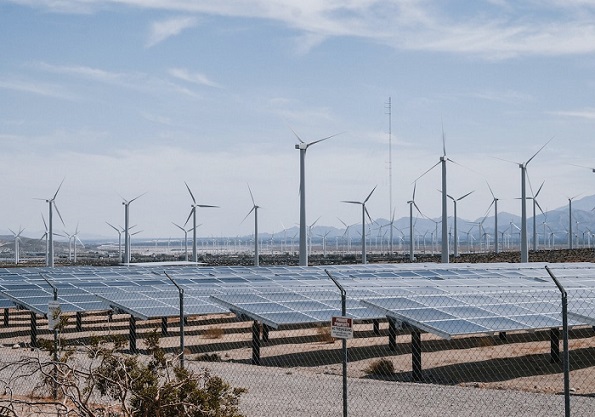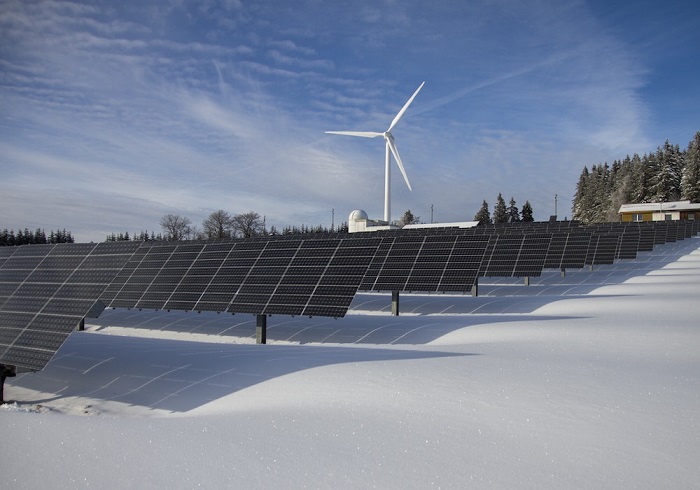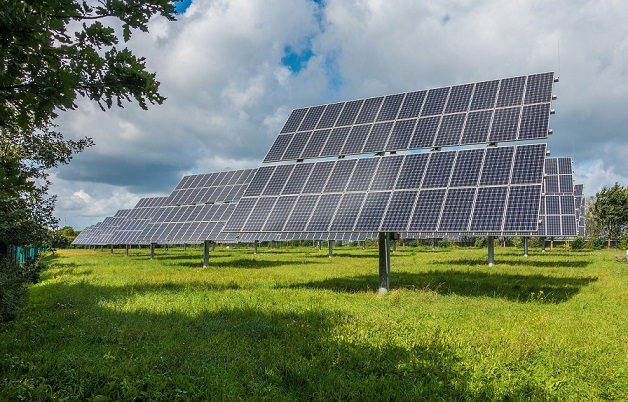Solar power has been a hot topic in recent years, with many people looking to switch to renewable energy sources for their homes and businesses in Vancouver. Solar panels, which harness the sun’s energy and convert it into electrical energy, are a popular choice among those looking for a sustainable power source. However, the question remains: are solar panels sustainable?
In this article, we will explore the pros and cons of PV panels, their environmental impact, and their sustainability as a power generation source. Let’s get started.
Why Is Solar Power Good for the Environment?

The solar power system is a clean and renewable energy source, which means that it does not emit any greenhouse gases or other harmful pollutants.
Unlike conventional fossil fuels, which are finite resources that release a significant amount of carbon dioxide into the atmosphere, the installed capacity of solar technology is based on harnessing the sun’s energy, which is available in abundance and will be available for billions of years.
Additionally, PV panels are easy to install and maintain, making them an attractive option for those looking to reduce their carbon footprint and mitigate climate change.
The Pros and Cons of Solar Panels in BC, Canada
One of the main advantages of solar panels in BC is that they provide a sustainable and reliable source of green energy. Once installed, they can generate electricity for decades with little to no maintenance.
Additionally, solar panels can be installed almost anywhere, from remote areas to urban rooftops, making them a versatile option for energy generation.
However, PV panels also have their drawbacks. One of the main disadvantages is their initial cost, which can be high. While the cost of solar thermal panels has decreased significantly in recent years, they still require a significant investment upfront.
Another disadvantage is that PV panels are dependent on sunlight, which means that they may not generate enough energy during cloudy or rainy days. This means that PV panels may not be able to meet all of a household’s energy needs and may need to be supplemented with another energy source.
Environmental Impact of Solar Panel Manufacturing

While solar panels themselves have a low carbon impact, their manufacturing processes can have an impact on the environment. The production of solar cells requires the use of non-renewable materials, such as silicon, which must be mined and refined.
Additionally, manufacturing procedures can generate hazardous waste products, such as lead and cadmium. However, advances in solar PV technologies have led to more environmentally friendly manufacturing procedures, and many solar panel manufacturers are committed to reducing their carbon impact and waste products.
Carbon Emission Intensity of Solar Panels and Other Fossil Fuels
Solar panels have a significantly lower carbon emission intensity than conventional fossil fuels and nuclear energy.
According to the National Renewable Energy Laboratory, solar panels produce energy of about 40 times less carbon dioxide per unit of electricity than coal-fired power plants. Additionally, the levelized cost of solar PV technology continues to decrease, making solar photovoltaics more economically sustainable in the long run.
Installing solar panels can also have a significant impact on reducing carbon emissions. By generating electricity from renewable sources, households, and businesses can reduce their reliance on conventional fossil fuels and help mitigate climate impact.
Additionally, as more households and businesses install solar panels, the global capacity for solar energy generation increases, further reducing greenhouse gases.
The Role of Solar Energy in Sustainable Development of Canada

Sustainable development is the process of meeting the needs of the present without compromising the ability of future generations to meet their own needs.
The solar energy industry of BC is a sustainable energy source and is a critical component of sustainable development, as it provides clean and solar energy sustainability that can help to reduce our reliance on non-renewable fossil fuels.
The adoption of solar energy technology is growing worldwide, as countries seek to meet their energy needs in an environmentally sustainable manner.
One of the key benefits of solar energy is that it can be used to power homes and businesses in both urban and rural areas, providing electricity to those who would otherwise have limited access to energy.
This can improve the quality of life for people in developing countries, where access to electricity is often limited.
In addition, solar energy can provide a sustainable source of energy for off-grid communities, reducing the need for expensive and environmentally damaging diesel generators.
Another important role of solar energy in sustainable development is its potential to reduce carbon emissions and mitigate climate change.
By using solar energy to power homes and businesses, we can reduce our reliance on conventional fossil fuels, which are a major source of greenhouse gas emissions.
Employment from Renewable Energy
Renewable energy sources like solar power, wind power, and hydroelectric power are key drivers of job creation in the energy sector.
According to the International Renewable Energy Agency (IRENA), the sector employed 11.5 million people worldwide in 2019, an increase of 1.1 million jobs from the previous year. Of these jobs, the majority were in the solar and wind industries.
The PV industry, in particular, has been a major source of job creation in recent years. Solar panel manufacturing and installation require a range of skilled and unskilled workers, including engineers, electricians, and construction workers.
The employment benefits of solar energy extend beyond the energy sector itself. The adoption of solar energy technologies can lead to job creation in related industries, such as transportation and construction, as well as in local economies.
In addition, solar energy jobs tend to be more stable and better paying than jobs in traditional fossil fuel industries, providing a path to economic growth and prosperity.
Programs that Promote Sustainability in Canada
Solar energy is an important source of renewable energy, and Canada has been making significant strides toward promoting sustainability through solar energy. Several programs have been put in place to encourage homeowners and businesses to adopt solar energy. We will be discussing some of the programs that promote sustainability in Canada through solar energy.
Canada Greener Homes Grant
The Canada Greener Homes Grant is a federal program that provides homeowners with grants of up to $5,000 to make their homes more energy-efficient. The grant can be used to install solar panels, as well as for other upgrades such as insulation, windows, and doors. The program aims to reduce greenhouse gas emissions and make homes more comfortable and affordable to operate.
PACEAlberta
PACEAlberta is a financing program that provides property owners with financing for renewable energy upgrades such as solar panels. The program offers loans with low-interest rates and long repayment terms. This makes it easier for property owners to invest in solar energy. The loans are paid back through property tax bills. The program is available to both residential and commercial property owners.
Banff Solar PV Rebates
The Banff Solar PV Rebate program is a municipal program. It offers rebates to homeowners and businesses that install solar panels. The program offers rebates of up to $1,500 for residential properties and up to $5,000 for commercial properties. The program aims to reduce greenhouse gas emissions and increase the use of renewable energy in the Banff community.
Edmonton Solar Rebate Program
The Edmonton Solar Rebate Program is a municipal program that offers rebates to homeowners and businesses that install solar panels. The program offers rebates of up to $0.40 per watt of installed solar capacity. For residential properties, the maximum rebate is $4,000, while for commercial properties, it is $15,000. The program aims to reduce greenhouse gas emissions and increase the use of renewable energy in the Edmonton community.
BC Net Metering Program
The BC Net Metering Program is a provincial program. It allows homeowners and businesses to generate their own electricity using solar panels and other renewable energy sources. The program allows participants to sell excess electricity back to the grid. This helps reduce their energy bills and promotes the use of renewable energy.
BC PST Exemptions
The BC PST Exemptions program provides exemptions from the provincial sales tax (PST) for qualifying renewable energy products. This includes solar panels. The program aims to reduce the cost of renewable energy upgrades for homeowners and businesses. This makes it easier for them to invest in solar energy.
Finally, Canada has implemented several programs to promote sustainability through solar energy. These programs provide financial incentives, financing options, and tax exemptions to encourage adoption of solar energy. They help homeowners and businesses reduce their carbon footprint. These initiatives help to protect the environment and promote a sustainable future for all Canadians.
Frequently Asked Questions
Are Solar Panels Environmentally Friendly?
Solar panels are considered to be one of the most environmentally friendly energy sources available today. PV panels generate clean electricity without emissions, unlike fossil fuels that emit greenhouse gases and other pollutants. This makes PV panels a cleaner and safer alternative to traditional energy sources.
This makes solar energy a key player in mitigating climate change and promoting environmental sustainability.
Furthermore, the installation of PV panels on rooftops or in large solar farms does not disrupt local ecosystems. This is often not the case with other energy generation methods. While there are some environmental impacts associated with the manufacturing and disposal of PV panels. The overall impact is much lower than that of fossil fuel energy sources.


Leave a Reply